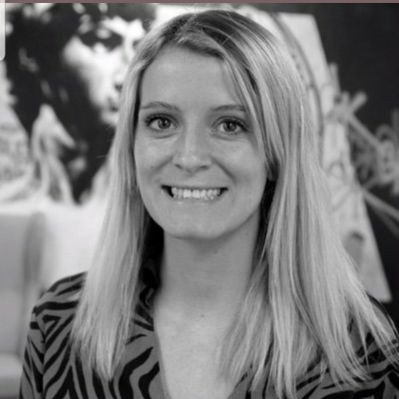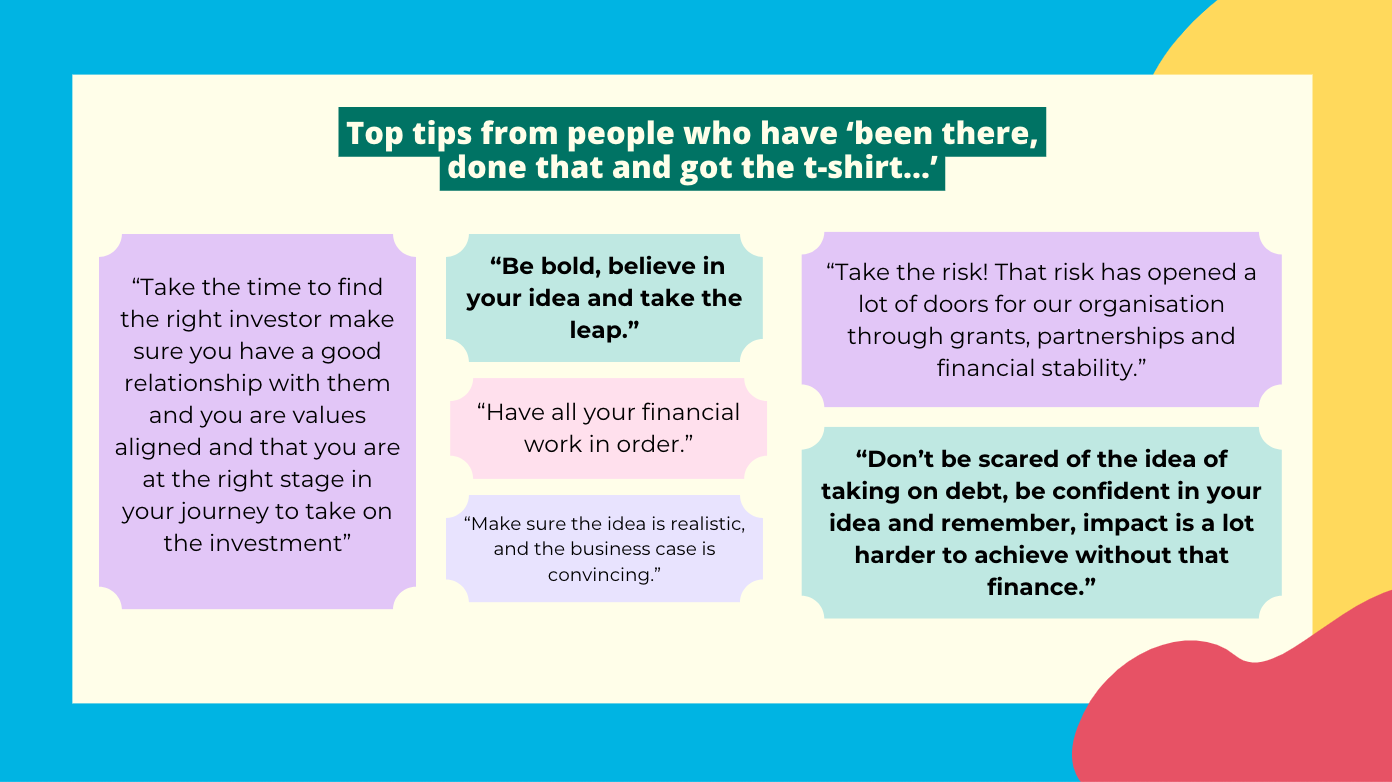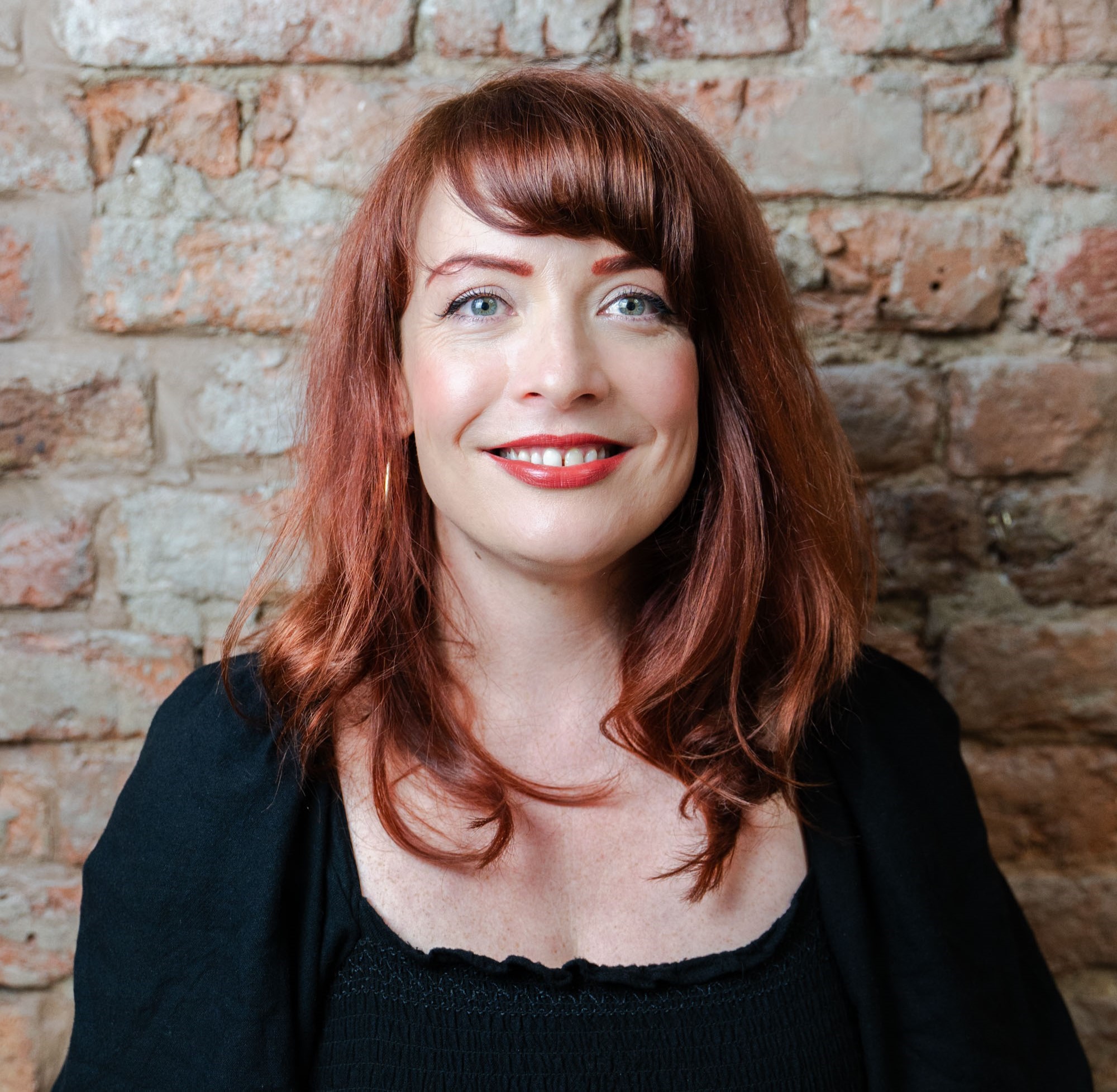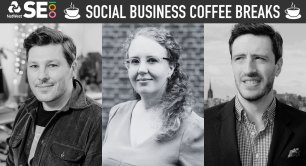How to be brilliant at getting investment for your social enterprise: Be honest, be patient and be open to feedback
Where can you go to find the right investment for your social enterprise? How can you be ‘investment ready’? And what are the latest investment opportunities? Our expert webinar panel answers these questions and more.
“Don’t tell us what you think we want to hear” – that’s the message from impact investors to social enterprises seeking investment.
All the experts on our panel on securing investment for your social enterprise agreed that being open and honest with potential investors was crucial. As emphasised by Annie Constable, digital content manager at Good Finance, that could sometimes include “being a bit demanding” and asking for an amount of money so large you fear it may put investors off.

Annie (pictured) added that organisations offering social investment were committed to delivering impact, not only profits, so if you’re honest with them they would be supportive and work with you to find solutions to any problems which arise.
This was just one lesson of many shared during the most recent SE100 Social Business Coffee Breaks webinar on how to be brilliant at getting investment for your social enterprise.
The Social Business coffee breaks webinars, organised in partnership with NatWest Social and Community Capital, aim to provide inspiration and practical advice to help social businesses to grow and thrive. In addition to Annie, the panel included Sophie Clark, CEO of We Are Juno CIC and Brendan Hegarty, loans officer at NatWest Social and Community Capital.
What to consider before taking on social investment
Good Finance is a collaborative project to help improve access to information on social investment for charities and social enterprises, jointly funded by Better Society Capital and Access – the foundation for social investment.
Annie recommended considering three things before taking on social investment: what do you need investment for; how will you repay the investment and what impact will the investment create?

Good Finance’s Social Investor Directory lists more than 100 social investors and funds across the UK, and Annie noted that 85% of social investors listed there were, in fact, charities or social enterprises themselves.
The social investment sector was extremely collaborative, Annie emphasised, and even if one investor said no to you they may well signpost you to somewhere more likely to invest in your organisation.
Reflecting on the benefits of social investment in comparison to grants, Annie said Good Finance used to say grant funding was always better than social investment because you didn’t have to pay it back. But the organisation had recently revised that message after being reminded it took significant time and resource to apply for grants and because they wereso competitive. As a result, many social enterprises and charities were looking to diversify their income, including considering social investment.
‘The flowers of tomorrow are in the seeds of today’
We Are Juno CIC runs residential care homes for children and young people in Liverpool City Region and was joint winner of this year’s SE100 Social Investment Pioneers award.

Sophie (pictured) said she believed that having the voices of care-experienced young people at heart of We Are Juno’s business plan gave investors confidence the organisation would deliver impact and was key to securing £1.9m of social investment.
We Are Juno produced a thorough business plan and detailed financial model which took a 12-year view on how the business would operate and forecast a break-even position at around year three. This helped decide the right legal structure for We Are Juno and in turn enabled it to better deliver impact.
Sophie said: “We were really keen that whilst [We Are Juno] would receive weekly placement fees like all providers in the sector, from local authorities, as a CIC there’s an asset lock on how our surplus can be used. And we wanted that surplus to be reinvested early so that, over time, we can play a preventative role in children and families support.”
The biggest learning point was, because things took longer than we expected, we realised within a year of securing the investment, it probably wasn't enough. So if I did it again, I'd ask for more
The We Are Juno team knew securing investment for a startup with zero track record in a highly regulated area was always going to be difficult. These factors added time to how long it took to secure investment, but Sophie said solid evidence of the impact the organisation aimed to make helped find investors with the right risk appetite.
Sophie said: “I think the biggest learning point was, because things took longer than we expected, we realised within a year of securing the investment, it probably wasn’t enough. So if I did it again, I’d ask for more.”
Feedback from investors who reject you was an important part of securing investment, Sophie added. She advised that even if you’re rejected once, making a positive impression on an investor can lead to securing investment in the future.
She said: “The flowers of tomorrow are in the seeds of today. You know, people remember, and you can still go back and have those discussions and it will be a positive outcome.”
How to be ‘investment ready’
NatWest Social and Community Capital (S&CC) supports purpose-led organisations which have social impact within their communities but aren’t eligible for mainstream lending. It offers flexible support in the form of loans, mentoring and networking.

Brenden Hegarty (pictured) explained that S&CC looked first at the impact potential investees delivered and that it wanted evidence that organisations were “investment ready”. For S&CC, this meant having the right legal structure, management, governance, financial position and a board, including four non-related directors or trustees. He emphasised that it was really important to have all these elements in place before seeking investment.
Robust financial forecasting and planning enabled both social enterprises and investors to plan for worst-case scenarios, said Brenden. Planning in this way, and having proactive conversations with investors about potential challenges, demonstrates your foresight and enables both sides to work to find solutions.
Brenden emphasised that knowing your value and demonstrating your impact through strong reporting was key to securing investment. He recommended the previous SE100 webinar on how to be brilliant at impact reporting for any organisations wanting to improve in this area.
Create your own user feedback survey
|
|





